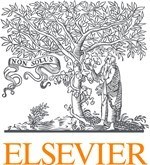NIH’s National Center for Advancing Translational Sciences and Elsevier Strike Agreement for Use of NCATS’ Rare Disease Database to Support Primary Care

PHILADELPHIA, Sept. 4, 2019 /PRNewswire/ — Elsevier, a global information analytics business specializing in science and health, and the National Center for Advancing Translational Sciences (NCATS), part of the National Institutes of Health (NIH), have agreed to allow Elsevier to access NCATS’ rare disease database.

The Genetic and Rare Diseases Information Center (GARD), a program of NCATS, developed the database to provide patients, their families and friends, healthcare providers, and the public with current information on rare and/or genetic conditions and support sources.
“Our aim is for the GARD database to be utilized by physicians as widely as possible,” said Anne Pariser, MD, Director of the NCATS Office of Rare Diseases Research. “We are hopeful that the information contained in GARD can be used to develop diagnostic tools, and that more commercial and non-commercial entities are able to find valuable uses for it that help clinicians and patients.”
Elsevier is building an online tool to help healthcare providers, particularly physicians, broaden the scope of diagnosis based not just on patients’ symptom but also taking into consideration their medical history to predict a list of diseases to which the patient may be subject.
“As we explore new ways to provide data-driven support for clinicians, we see the GARD database as a key to informing our new diagnosis product,” said John Danaher, MD, President of Clinical Solutions, Elsevier. “We are grateful to GARD, NCATS and NIH to be able to blaze a trail by partnering with GARD and use the database in a point of care product. By pulling in the data on rare diseases, we hope to help clinicians make more accurate, more comprehensive diagnoses.”
The GARD database will feed the Elsevier product’s content-based algorithm to predict a list of diseases based on the symptoms provided by the patient. Created in 2002, GARD is funded by two parts of the NIH: NCATS and the National Human Genome Research Institute (NHGRI). GARD provides the public with access to current, reliable and easy to understand information about rare or genetic diseases in English or Spanish.
About Elsevier
Elsevier is a global information analytics business that helps scientists and clinicians to find new answers, reshape human knowledge, and tackle the most urgent human crises. For 140 years, we have partnered with the research world to curate and verify scientific knowledge. Today, we’re committed to bringing that rigor to a new generation of platforms. Elsevier provides digital solutions and tools in the areas of strategic research management, R&D performance, clinical decision support, and professional education; including ScienceDirect, Scopus, SciVal, ClinicalKey and Sherpath. Elsevier publishes over 2,500 digitized journals, including The Lancet and Cell, 39,000 e-book titles and many iconic reference works, including Gray’s Anatomy. Elsevier is part of RELX, a global provider of information-based analytics and decision tools for professional and business customers. www.elsevier.com
Media contact
Christopher Capot, Global Communications
Elsevier
+1-917-704-5174
c.capot@elsevier.com
SOURCE Elsevier
